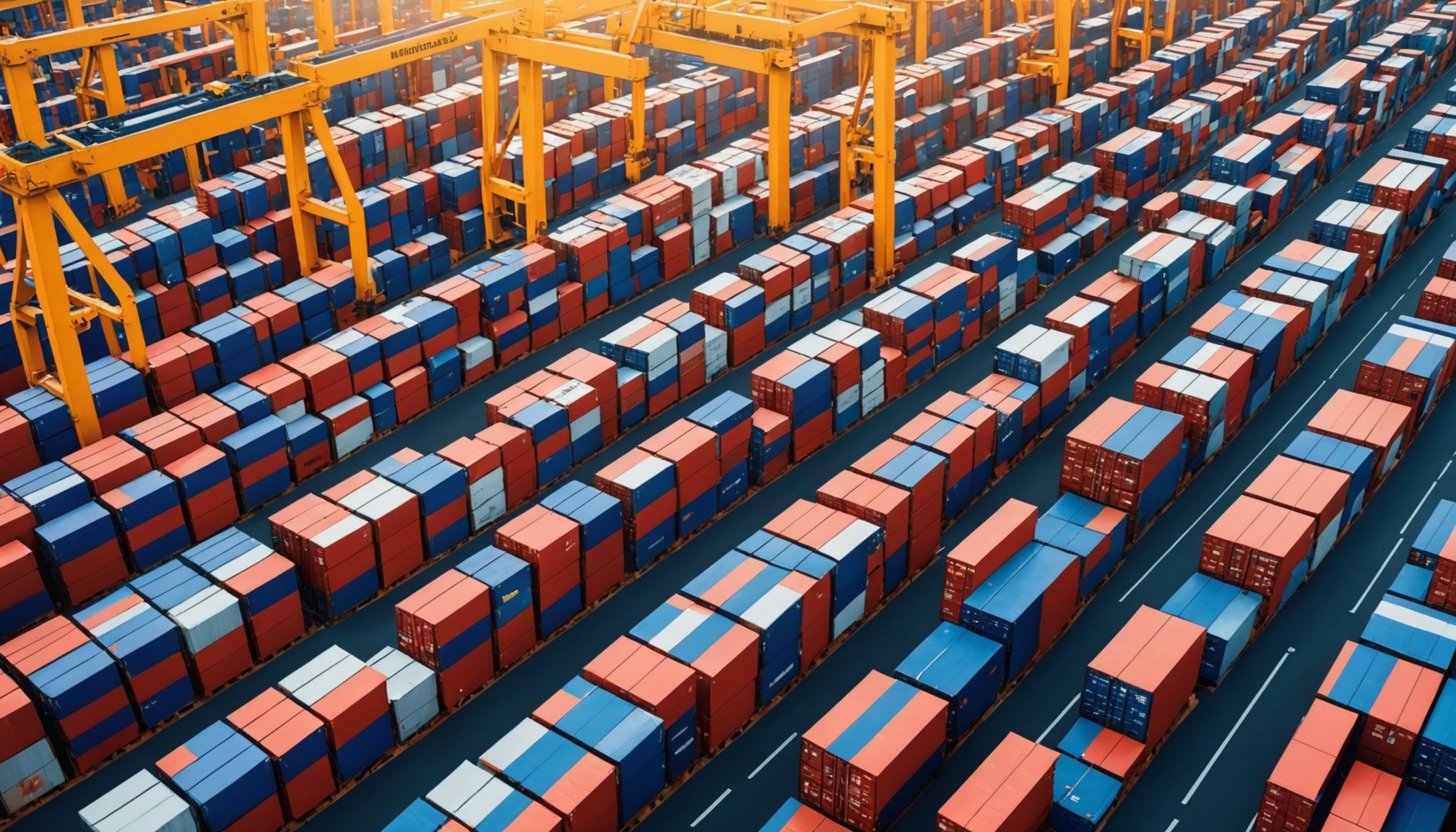Understanding Blockchain Technology
Diving into blockchain fundamentals, this technology is pivotal in transforming the digital landscape. Blockchain operates as a decentralised ledger, recording transactions across a network without a central authority. This decentralisation ensures that entries are immutable, providing supply chain transparency and reliability.
The importance of blockchain security cannot be overstated. By distributing data across a network, it is less vulnerable to cyberattacks, ensuring that information is safeguarded against tampering and fraud. For supply chains, this security means authenticating the provenance of goods, tracing their movement, and confirming their integrity at each stage of the process.
Additional reading : Transforming pharma production: leveraging ai to streamline and enhance validation methods
In supply chains, transparency is enhanced as blockchain allows all stakeholders to access the same real-time data. This visibility is crucial when verifying materials’ ethical sourcing or ensuring regulatory compliance. Blockchain’s immutable nature ensures that once a transaction is recorded, it cannot be altered retroactively, which enhances both trust and accountability.
Thus, blockchain technology is more than just hype; it’s an essential tool for enhancing the security and transparency of transactions, ensuring that every step in supply chains is both traceable and verifiable. This brings about a new level of integrity and efficiency in operations.
Also read : Revolutionizing building management with iot: discover smarter, more efficient solutions
The Role of Blockchain in Supply Chain Collaboration
Blockchain is revolutionising supply chain collaboration by facilitating real-time data sharing, essential for seamless operations. Through its decentralised ledger, all stakeholders can access identical data simultaneously, ensuring transparency and synchronisation at every step. This capability reduces discrepancies and inefficiencies common in traditional supply chains.
One of the most significant advancements in blockchain technology is the use of smart contracts. These are self-executing contracts with the terms of the agreement directly written into code. Smart contracts automate processes, reducing manual intervention and potential for error. For businesses, this means faster transactions and reduced operational costs, enhancing overall efficiency.
Moreover, trust and accountability are foundational for strong supply chain relationships. With blockchain, every transaction is both verifiable and immutable. This ensures that once data is recorded, it cannot be altered, building confidence among partners. Risk of fraud is significantly minimised, establishing a reliable network for collaborative transactions.
As blockchain integration becomes widespread, businesses leveraging these technologies stand to gain a strategic edge. The focus on collaborative transactions and transparent practices not only enhances efficiency but also fortifies the entire supply chain against potential disruptions, setting new industry standards.
Innovative Case Studies of Blockchain in Supply Chains
Exploring real-world examples of blockchain reveals its transformative potential across various industries. Companies like IBM and Walmart have marked significant progress with successful implementations of blockchain technology in their supply chains.
Industry applications of blockchain are vast, notably in food safety and traceability. Walmart, for instance, utilises blockchain to track produce from farm to shelf, reducing the time taken to trace food sources from days to mere seconds. This efficiency heightens supply chain transparency and ensures prompt responses to contamination issues.
In the logistics sector, Maersk has adopted blockchain to improve cargo tracking and documentation. Their blockchain solution has streamlined the traditionally cumbersome paperwork processes, showcasing how blockchain can drive operational efficiencies.
From these case studies, crucial lessons emerge. Blockchain’s capability to enhance efficiency and transparency is often highlighted, justifying its widespread adoption. However, successful projects underscore the importance of strategic partnerships and technology adaptation tailored to specific industry needs.
By examining these pioneering cases, businesses can glean insights for their blockchain journeys, understanding the profound impacts that this technology can deliver when thoughtfully integrated into supply chain strategies.
Benefits of Employing Blockchain Technology
Utilising blockchain technology offers several advantages, notably in achieving increased efficiency, mitigating risk, and boosting enhanced transparency. By streamlining operations, blockchain minimises administrative tasks, reducing costs and freeing up resources for more productive endeavours. When businesses leverage blockchain’s efficiency, they often find that processes previously prone to delays and errors become swifter and more reliable.
Risk reduction is another pivotal benefit. Blockchain’s secure and immutable ledger helps mitigate risks associated with supply chain disruptions and fraud. By providing an unalterable record of transactions, blockchain ensures data integrity, which is crucial in identifying potential vulnerabilities before they escalate into significant problems.
Furthermore, transparency is greatly improved. Enhanced transparency leads to better compliance standards and traceability, as every participant in the supply chain has access to the same trustworthy data. Transparency is essential in industries that require stringent regulatory adherence and accountability, thereby ensuring that goods comply with applicable laws and ethical standards.
In essence, blockchain’s integration can transform operations through efficient resource allocation, reduced risk exposure, and superior oversight. These advancements not only reinforce trust but also herald a new era of operational clarity and precision.
Challenges and Considerations in Blockchain Adoption
Adopting blockchain technology in supply chains offers great potential but presents several implementation challenges. Businesses often encounter hurdles such as scalability issues, which can hinder their ability to handle large volumes of transactions efficiently. As the technology matures, addressing these issues with scalable solutions is crucial for widespread adoption.
Interoperability is another significant consideration. Different blockchain platforms may not seamlessly communicate with one another, complicating integration into existing systems. Developers are working diligently to create standards that facilitate cross-platform compatibility, crucial for achieving streamlined operations.
Regulatory frameworks also pose challenges for blockchain adoption. As governments worldwide grapple with the technology’s implications, companies must navigate complex regulations that vary across jurisdictions. This can affect how blockchain solutions are designed and implemented, requiring businesses to stay informed and adaptable.
To successfully leverage blockchain, businesses must perform thorough due diligence, ensuring their strategies account for these challenges. Collaborating with technology partners who understand both regulatory landscapes and technical nuances is essential. Overcoming these considerations will pave the way for harnessing blockchain’s full potential, empowering organisations to innovate and maintain a competitive edge in their supply chains.
Future Trends and Strategic Advantages
New blockchain trends are shaping the future of supply chain management, with an emphasis on innovation and strategic planning. One key trend is the integration of blockchain with Internet of Things (IoT) devices, which allows for detailed, real-time tracking of goods throughout the supply chain. This fusion empowers companies to monitor environmental conditions, enhancing the quality assurance process.
The rise of tokenisation presents another significant development, facilitating new ways to represent and exchange assets digitally. This trend is proving beneficial for both streamlining supply chain processes and creating new economic opportunities. Businesses can optimise inventory management and reduce costs by utilising tokenised assets.
AI-powered analytics combined with blockchain is advancing predictive capabilities in supply chain management. These analytics enable companies to anticipate disruptions, improving resilience and agility. Adopting these trends provides a strategic advantage, offering enhanced decision-making and reduced reaction times.
Looking ahead, blockchain’s role in facilitating collaborative transactions is expected to grow, enhancing partnerships and protecting against disruptions. Embracing these strategic innovations will be crucial for businesses aiming to maintain a competitive edge in an increasingly digital and interconnected world.











